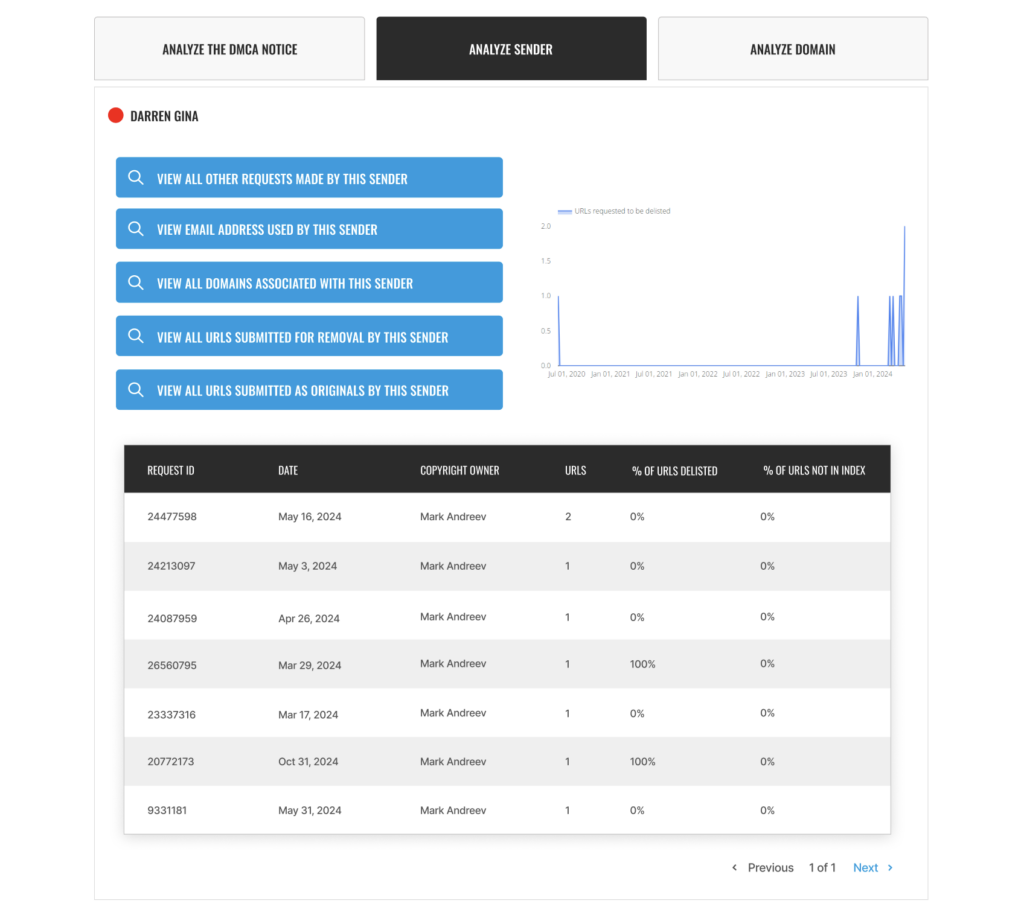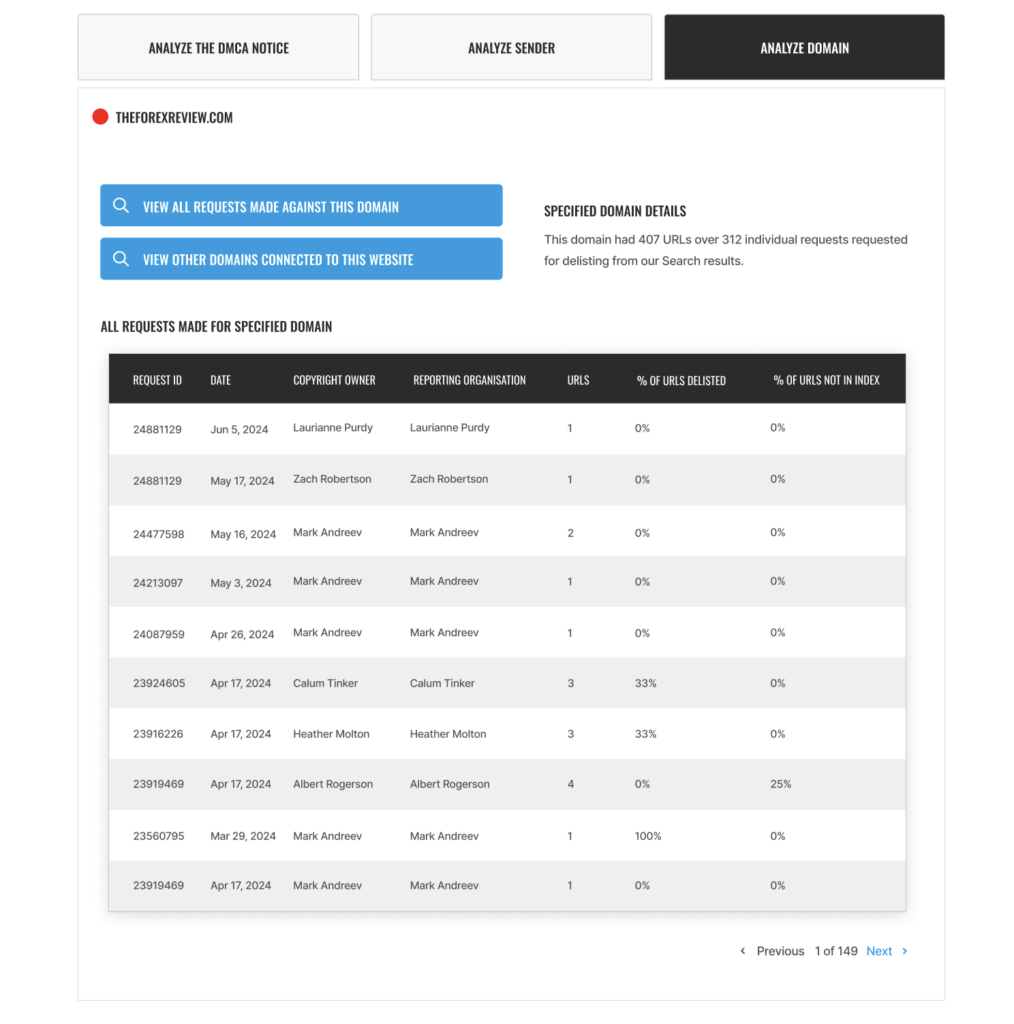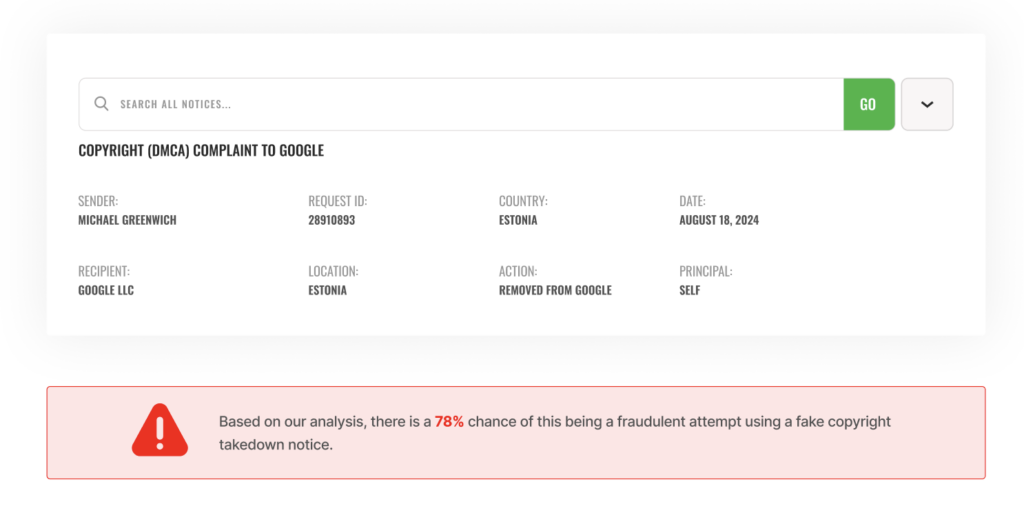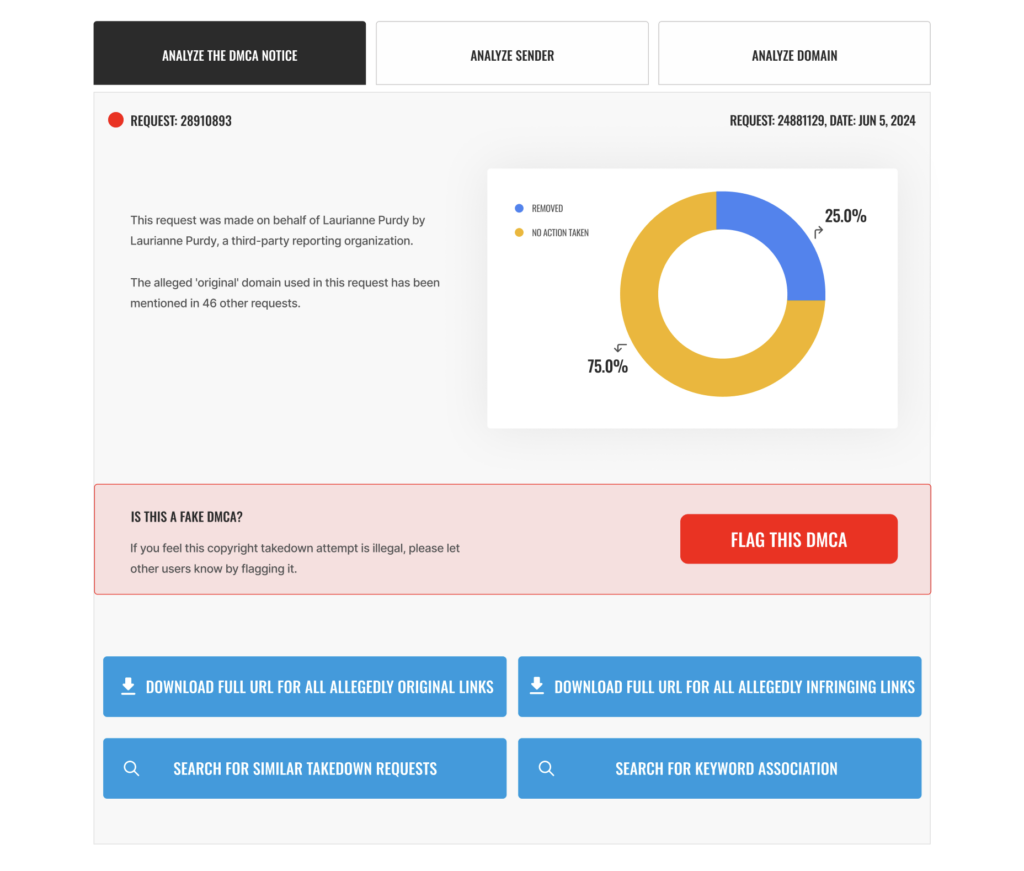What Happened?
David Ruiz de León, the founder and CEO of the now-collapsed cryptocurrency platform Kuailian, is at the center of one of the most notorious cryptocurrency-related scandals in recent years. He has been under scrutiny for orchestrating a Ponzi-like scheme that reportedly defrauded over 65,000 investors of nearly €500 million. Alongside the legal battle and international arrest warrants issued against him and his associates, Ruiz de León has also been accused of attempting to suppress negative information online.His company, Kuailian, which marketed itself as a cutting-edge cryptocurrency investment platform, has faced widespread allegations of fraud, specifically operating as a Ponzi scheme that lured in unsuspecting investors with promises of unrealistic returns. The situation has attracted the attention of international authorities, and Ruiz de León, along with other executives from Kuailian, is under investigation for multiple offenses, including fraud, money laundering, and running a criminal organization. The collapse of Kuailian has had significant repercussions for its investors, resulting in lawsuits and criminal proceedings, as well as considerable public scrutiny.

Sources indicate that Kuailian used underhanded tactics such as filing fake DMCA takedown notices to remove critical reviews and damaging news articles from search engines like Google. These takedowns targeted content that exposed Kuailian’s dubious business practices, including allegations of fraud, money laundering, and running a pyramid scheme. Despite these efforts, the scale of the scandal has made it difficult for Ruiz de León to fully censor the mounting criticism and legal scrutiny directed at him.
His actions raise broader concerns about how individuals involved in fraudulent schemes attempt to manipulate online narratives and evade accountability by silencing critical voices through false legal claims.

Analyzing the Fake Copyright Notice(s)
Our team collects and analyses fraudulent copyright takedown requests, legal complaints, and other efforts to remove critical information from the internet. Through our investigative reporting, we examine the prevalence and operation of an organized censorship industry, predominantly funded by criminal entities, oligarchs, and disreputable businesses or individuals. Our findings allow internet users to gain insight into these censorship schemes’ sources, methods, and underlying objectives.
List of Fake Copyright Notices for David Ruiz Leon
| Number of Fake DMCA Notice(s) | 1 |
| Lumen Database Notice(s) | https://lumendatabase.org/notices/30772625 |
| Sender(s) | Jimmy Mathew |
| Date(s) | Feb 16, 2023 |
| Fake Link(s) Used by Scammers | https://www.tumblr.com/dailynewzswire/709485582244560896/david-ruiz-leon |
| Original Link(s) Targeted | https://www.expansion.com/ejecutivo-administrador/david-ruiz-leon_1676079_F65.html |
Evidence and Screenshots

How do we investigate fake DMCA notices?
To accomplish this, we utilize the OSINT Tool provided by FakeDMCA.com and the Lumen API for Researchers, courtesy of the Lumen Database.
FakeDMCA.com is the work of an independent team of research students and cybersecurity professionals, developed under Project UnCensor. Their OSINT Tool, designed to uncover and analyze takedown notices, represents a significant step forward in combating these abusive practices. It has become a valuable resource, increasingly relied upon by journalists and law enforcement agencies across the United States.
Lumen, on the other hand, is an independent research initiative dedicated to studying takedown notices and other legal demands related to online content removal. The project, which operates under the Berkman Klein Center for Internet & Society at Harvard University, plays a crucial role in tracking and understanding the broader implications of such requests.
What was David Ruiz Leon trying to hide?
David Ruiz de León is the CEO and co-founder of Kuailian, a cryptocurrency investment platform that has faced severe allegations, legal challenges, and widespread criticism for operating what many describe as a Ponzi scheme. His name has been at the center of significant controversy due to Kuailian’s practices, which have led to accusations of fraud, money laundering, and running a criminal organization.
Kuailian’s Business Model and Allegations
Kuailian attracted investors by offering a service where users could participate in “staking” cryptocurrency and investing in masternodes. Staking, in this context, involves holding funds in a cryptocurrency wallet to support the operations of a blockchain network. Kuailian promised its users substantial returns on their investments, which allegedly reached up to 6% to 8% monthly in some cases. Investors were also incentivized to recruit new participants, receiving commissions from the investments of those they recruited, creating a classic multi-level marketing (MLM) structure.
However, reports and investigations have indicated that Kuailian’s model may have functioned as a Ponzi scheme. Instead of legitimate profits from investments, the returns to early investors were likely paid using the funds from new investors, a characteristic common to pyramid schemes. As more victims were unable to withdraw their funds, Kuailian’s structure began to collapse, leading to widespread financial damage for many participants.
The platform’s troubles culminated in a legal case in Spain, where over 65,000 people reported being affected, with financial losses estimated to be around €500 million. In response, Spanish authorities issued an international arrest warrant for David Ruiz de León and his business partner Cristian Albeiro Carmona Hernández. Both men are under investigation for aggravated fraud, money laundering, and operating a criminal organization.
Legal and Criminal Implications
David Ruiz de León and his partner are currently evading arrest, with reports suggesting they are residing in the United Arab Emirates. Despite being summoned multiple times to testify in court, Ruiz de León has failed to appear, citing severe anxiety and threats made against him. His absence from legal proceedings has led to suspicions that the pair are intentionally avoiding the law.
The legal case against Kuailian stems from accusations that the platform’s operations were not legitimate. Although Kuailian claimed it was offering a decentralized finance (DeFi) investment opportunity using advanced cryptocurrency technologies, critics have argued that the business model relied on constantly recruiting new investors to sustain payouts to earlier participants. When the platform could no longer attract sufficient new investments, it began to falter, leading to a widespread financial collapse.
Attempts to Suppress Negative Information
In addition to the financial allegations, Ruiz de León has been accused of attempting to hide adverse news, negative reviews, and critical information about himself and Kuailian online. Several sources, including Gripeo and BehindMLM, have documented attempts by Kuailian to remove damaging content from the internet. These actions reportedly included filing fake DMCA (Digital Millennium Copyright Act) takedown requests to get negative reviews de-indexed from Google search results.
One prominent example involved a fraudulent DMCA notice sent to suppress a critical review of Kuailian. The review exposed the platform’s questionable practices, leading to attempts by Ruiz de León’s team to have the article removed under false copyright claims. This tactic, often referred to as a form of “reputation management” through legal manipulation, has drawn further criticism against Ruiz de León and Kuailian, highlighting unethical efforts to stifle transparency and public scrutiny.
These fake DMCA requests are part of a broader pattern of behavior where individuals and companies use legal loopholes to suppress criticism. In this case, it appears that Kuailian sought to remove critical content not through legitimate defamation or copyright claims, but by falsely claiming ownership over content that exposed their alleged misdeeds. Such actions have led to further investigations into Kuailian’s activities and have raised concerns about the company’s approach to legal and public relations matters.
The Broader Impact of the Kuailian Scandal
The collapse of Kuailian and the legal ramifications for its leaders have sent shockwaves throughout the cryptocurrency investment world. While many investors were lured by the promise of high returns, the eventual failure of Kuailian’s business model has left tens of thousands of people with significant financial losses. These losses have prompted multiple lawsuits and regulatory actions, not only in Spain but also in other jurisdictions where Kuailian operated.
As the investigation continues, more details are likely to emerge about the full scope of Kuailian’s activities and the involvement of Ruiz de León. The case highlights the risks associated with unregulated cryptocurrency investments, particularly those that operate under MLM structures, which are prone to collapsing once the influx of new investors dwindles.
Despite the attempts to suppress negative information online, the scale of the alleged fraud and the number of victims involved have kept the case in the public eye. This has made it difficult for Kuailian or Ruiz de León to fully erase the adverse news and allegations from the internet, as multiple independent media outlets and victim reports continue to surface.
David Ruiz de León’s role as the CEO of Kuailian has placed him at the center of a major cryptocurrency fraud investigation, involving accusations of operating a Ponzi scheme that affected tens of thousands of investors. His attempts to suppress negative information online, through legal manipulations like fake DMCA requests, have further damaged his reputation and raised ethical questions about his actions.
While legal proceedings continue, and with an international arrest warrant in place, Ruiz de León remains out of reach of the Spanish authorities. The fallout from the Kuailian scandal serves as a stark reminder of the potential dangers within the unregulated cryptocurrency market and the importance of transparency and legal compliance in the financial sector.
Only David Ruiz Leon benefits from this crime.

Since the fake copyright takedown notices were designed to remove negative content for David Ruiz Leon from Google, we assume David Ruiz Leon or someone associated with David Ruiz Leon is behind this scam. It is often a fly-by-night Online Reputation agency working on behalf of David Ruiz Leon. In this case, David Ruiz Leon, at best, will be an “accomplice” or an “accessory” to the crime. The specific laws may vary depending on the jurisdiction. Still, the legal principle generally holds that if you actively participate in planning, encouraging, or facilitating a crime, you can be charged with it, even if you did not personally commit it.
How do we counteract this malpractice?
Once we ascertain the involvement of David Ruiz Leon (or actors working on behalf of David Ruiz Leon), we will inform David Ruiz Leon of our findings via Electronic Mail.
Our preliminary assessment suggests that David Ruiz Leon may have engaged a third-party reputation management agency or expert, which, either independently or under direct authorization from David Ruiz Leon, initiated efforts to remove adverse online content, including potentially fraudulent DMCA takedown requests. We will extend an opportunity to David Ruiz Leon to provide details regarding their communications with the agency or expert, as well as the identification of the individual(s) responsible for executing these false DMCA notices.
Failure to respond in a timely manner will necessitate a reassessment of our initial assumptions. In such an event, we will be compelled to take appropriate legal action to rectify the unlawful conduct and take the following steps –
- Inform Google about the fraud committed against them.
- Inform the victims of the fake DMCA about their websites.
- Inform relevant law enforcement agencies
- File counter-notices on Google to reinstate the ‘removed’ content
- Publish copies of the ‘removed’ content on our network of 50+ websites
By investigating the fake DMCA takedown attempts, we hope to shed light on the reputation management industry, revealing how David Ruiz Leon and companies like it may use spurious copyright claims and fake legal notices to remove and obscure articles linking them to allegations of fraud, tax avoidance, corruption, and drug trafficking…
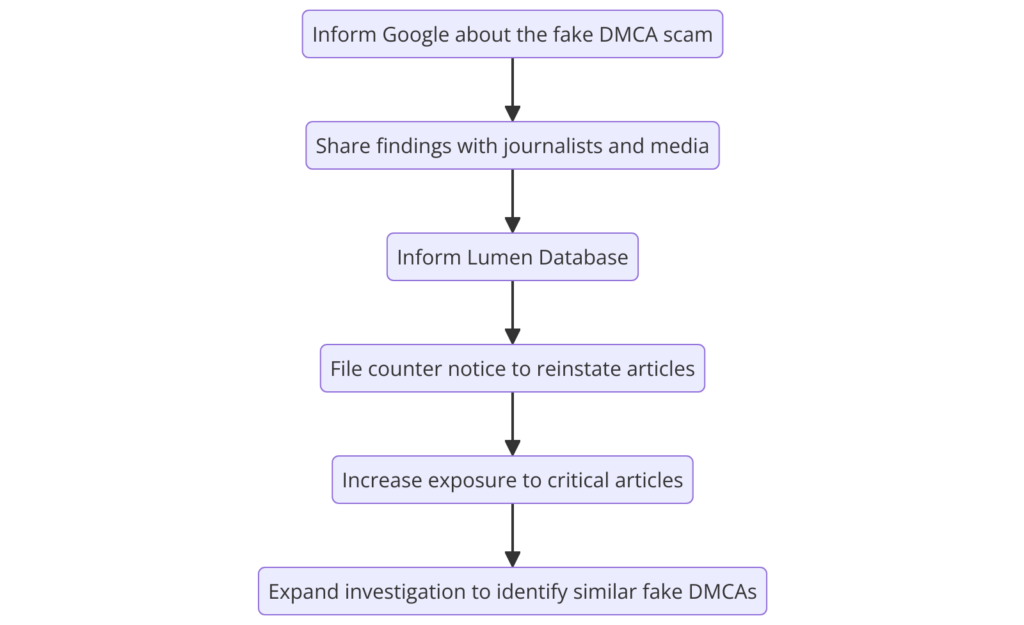
Since David Ruiz Leon made such efforts to hide something online, it seems fit to ensure that this article and our original review of David Ruiz Leon, including but not limited to user contributions, remain a permanent record for anyone interested in David Ruiz Leon.
A case perfect for the Streisand effect…
Potential Consequences for David Ruiz Leon
Under Florida Statute 831.01, the crime of Forgery is committed when a person falsifies, alters, counterfeits, or forges a document that carries “legal efficacy” with the intent to injure or defraud another person or entity.
Forging a document is considered a white-collar crime. It involves altering, changing, or modifying a document to deceive another person. It can also include passing along copies of documents that are known to be false. In many states in the US, falsifying a document is a crime punishable as a felony.

Additionally, under most laws, “fraud on the court” is where “a party has sentiently set in motion some unconscionable scheme calculated to interfere with the judicial system’s ability impartially to adjudicate a matter by improperly influencing the trier of fact or unfairly hampering the presentation of the opposing party’s claim or defense.” Cox v. Burke, 706 So. 2d 43, 46 (Fla. 5th DCA 1998) (quoting Aoude v. Mobil Oil Corp., 892 F.2d 1115, 1118 (1st Cir. 1989)).
Is David Ruiz Leon Committing a Cyber Crime?
Yes, it seems so. David Ruiz Leon used multiple approaches to remove unwanted material from review sites and Google’s search results. Thanks to protections allowing freedom of speech in the United States, there are very few legal ways to do this. David Ruiz Leon could not eliminate negative reviews or search results that linked to them without a valid claim of defamation, copyright infringement, or some other clear breach of the law.
Faced with these limitations, some companies like David Ruiz Leon have gone to extreme lengths to fraudulently claim copyright ownership over a negative review in the hopes of taking it down.
Fake DMCA notices have targeted articles highlighting the criminal activity of prominent people to hide their illegal behavior. These people, which include US, Russian, and Khazakstani politicians as well as members from elite circles including the mafia and those with massive financial power, are all connected – and alleged corruption ranging from child abuse to sexual harassment is exposed when exploring evidence found at these URLs. It appears there’s a disturbing level of influence being exerted here that needs further investigation before justice can be served. David Ruiz Leon is certainly keeping interesting company here….

The DMCA takedown process requires that copyright owners submit a takedown notice to an ISP identifying the allegedly infringing content and declaring, under penalty of perjury, that they have a good faith belief that the content is infringing. The ISP must then promptly remove or disable access to the content. The alleged infringer can then submit a counter-notice, and if the copyright owner does not take legal action within 10 to 14 days, the ISP can restore the content.
Since these platforms are predominantly based in the U.S., the complaints are typically made under the Digital Millennium Copyright Act (DMCA), which requires online service providers and platforms to react immediately to reports or violations. Big Tech companies rarely have systems in place to assess the merit o





